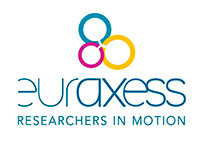Bolsa de PD em Ensaios Pré-Clínicos
Post-Doctora Fellowship in Pre-Clinical Trials
Nº: 6574
Área de conhecimento: Interdisciplinar
Field of knowledge: interdisciplinary
Nº do processo FAPESP: 2021/11946-9
FAPESP process: 2021/11946-9
Título do projeto: Plataforma de Inovação Tecnológica para Emergências em Saúde
Project title: Technological Innovation Platform for Health Emergencies
Área de atuação: Ensaios Pré-Clínicos
Working area: Pre-Clinical Trials
Quantidade de vagas: 1
Number of places: 1
Pesquisador responsável: Durvanei Augusto Maria
Principal investigator: Durvanei Augusto Maria
Unidade/Instituição: Laboratório de Desenvolvimento e Inovação – Rede Pré-clínica / Instituto Butantan
Unit/Instituition: Laboratório de Desenvolvimento e Inovação – Rede Pré-clínica / Instituto Butantan
Data limite para inscrições: 30/01/2024
Deadline for submissions: 2024-01-30
Publicado em: 24/11/2023
Publishing date: 2023-11-24
Localização: Avenida Vital Brasil, 1500, São Paulo
Locale: Avenida Vital Brasil, 1500, São Paulo
E-mail para inscrições: durvanei.maria@butantan.gov.br
E-mail for proposal submission: durvanei.maria@butantan.gov.br
-
Resumo
Summary
Uma Bolsa FAPESP de Pós-Doutoramento está disponível no âmbito da Plataforma de Inovação Tecnológica para Emergências em Saúde, um Centro de Ciência para Desenvolvimento (CCD) apoiado pela FAPESP que reúne uma equipe composta por pesquisadores do Instituto Butantan, sob coordenação do Prof. Dr. Durvanei Augusto Maria.
O(A) bolsista atuará no subprojeto intitulado “Plataforma nível de biossegurança três (NB-3) de estudos pré-clínicos – biotério de modelos experimentais in vivo para a avaliação da resposta vacinal”, e suas atividades serão conduzidas no Laboratório de Desenvolvimento e Inovação – Rede Pré-clínica, sob a supervisão do Dr. Durvanei Augusto Maria.
Neste projeto, o(a) bolsista irá:
1. Desenvolver modelos animais translacionais para o estudo de toxicidade e segurança para vacinas e imunobiológicos;
2. Avaliar em modelos animais de roedores e não roedores a resposta vacinal em normas internacionais para estudos não clínicos de segurança e toxicidade;
3. Conhecer as normas para o desenvolvimento de testes não clínicos segundo os guias internacionais, Guideline on Influenza Vaccines – Non-clinical and Clinical Module EMA/CHMP/VWP/457259/2014 e Guideline on non-clinical local tolerance testing of medicinal products – EMA/CHMP/SWP/2145/2000 Rev. 1, Corr. 1* Committee for Medicinal Products for Human Use (CHMP);
4. Conhecimento das avaliações das repostas imunológicas humoral e celular em modelos animais após a estimulação com vacinas e imunobiológicos;
5. Conhecimento de processamento de amostras para processamento histopatológico;
6. Ter conhecimento básico do desenvolvimento embrionário para a avaliação da toxicidade reprodutiva em roedores e não roedores.
O(A) candidato(a) deverá possuir as seguintes formações: Medicina Veterinária, Zootecnia, Biomedicina, Farmácia e Bioquímica e Biologia.
Os(As) interessados(as) poderão se candidatar via e-mail durvanei.maria@butantan.gov.br, anexando carta de interesse contendo experiência anterior, motivação e interesse no tema do projeto, bem como informações sobre as suas habilidades técnicas e metodológicas e proficiência em inglês, Currículo Lattes, e cartas de referência de dois professores/pesquisadores.A vaga está aberta a brasileiros(as) e estrangeiros(as). O(A) selecionado(a) receberá Bolsa de Pós-Doutorado da FAPESP no valor de R$ 9.047,40 mensais e Reserva Técnica equivalente a 10% do valor anual da bolsa para atender a despesas imprevistas e diretamente relacionadas à atividade de pesquisa.
One Post-Doctoral Fellowship is available at the Science for Development Center (CCD) “Technological Innovation Platform for Health Emergencies”. One of the CCDs in São Paulo state (Brazil) supported by the São Paulo Research Foundation, the center is coordinated by Prof. Dr. Durvanei Augusto Maria and a team made up of researchers from the Butantan Institute.
The Fellow will work on the subproject entitled “Biosafety level 3 (BSL-3) platform for pre-clinical studies – In vivo experimental Vivarium models for the evaluation of vaccine response”, and his/her activities will be conducted in the Development and Innovation Laboratory – Pre-clinical Network, under the supervision of Dr. Durvanei Augusto Maria.
In this project, the Fellow will
1. Develop translational animal models to study toxicity and safety for vaccines and immunobiologicals;
2. Evaluate the vaccine response in rodent and non-rodent animal models using international standards for non-clinical safety and toxicity studies;
3. Know the standards for the development of non-clinical tests according to international guides, Guideline on Influenza Vaccines – Non-clinical and Clinical Module EMA/CHMP/VWP/457259/2014 and Guideline on non-clinical local tolerance testing of medicinal products – EMA/CHMP/SWP/2145/2000 Rev. 1, Corr. 1* Committee for Medicinal Products for Human Use (CHMP);
4. Knowledge of the assessments of humoral and cellular immunological responses in animal models after stimulation with vaccines and immunobiologicals;
5. Knowledge of sample processing for histopathological processing;
6. Have basic knowledge of embryonic development to assess reproductive toxicity in rodents and non-rodents.
The candidate must have the following training: Veterinary Medicine, Animal Science, Biomedicine, Pharmacy and Biochemistry, and Biology.
Interested parties may apply via email to durvanei.maria@butantan.gov.br, attaching a letter of interest containing previous experience, motivation and interest in the project topic, as well as information about their technical skills and methodologies and proficiency in English, Lattes CV, and letters of reference from two professors/researchers.
This opportunity is open to candidates of any nationality. The selected candidate will receive a FAPESP Post-Doctoral fellowship in the amount of R$ 9,047.40 monthly and a research contingency fund, equivalent to 10% of the annual value of the fellowship which should be spent on items directly related to the research activity.
-
Enviar
Oportunidade - Oportunidades Abertas Open Opportunities
-
Fellowships Opportunities
